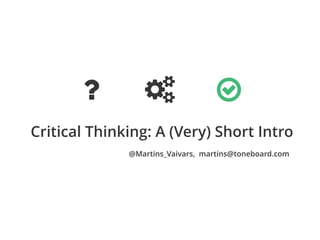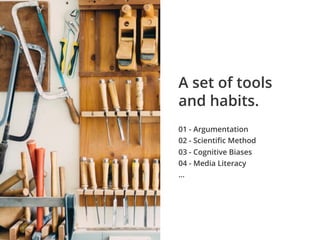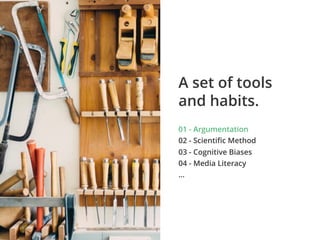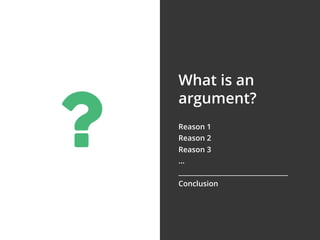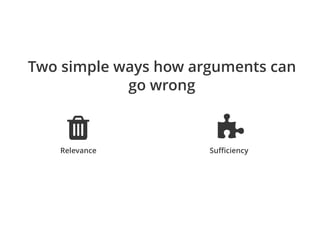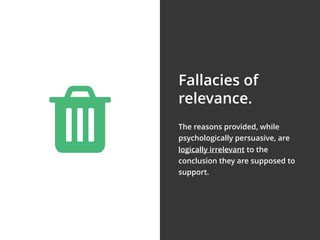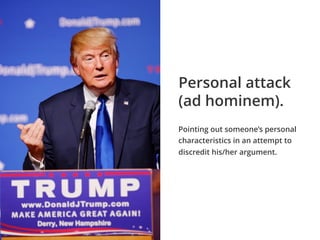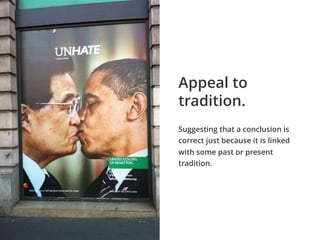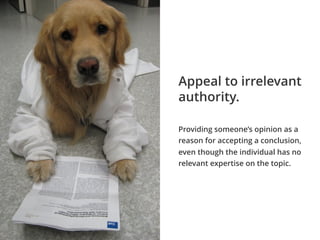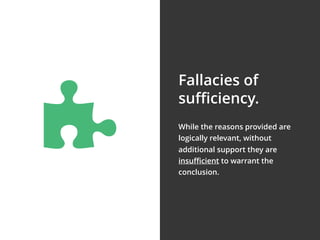Baltic pr awards critical thinking v03
- 1. Critical Thinking: A (Very) Short Intro ? ! ŌŚŗ @Martins_Vaivars, martins@toneboard.com
- 2. 01 - Argumentation 02 - Scienti’¼üc Method 03 - Cognitive Biases 04 - Media Literacy ŌĆ” A set of tools and habits.
- 3. 01 - Argumentation 02 - Scienti’¼üc Method 03 - Cognitive Biases 04 - Media Literacy ŌĆ” A set of tools and habits.
- 4. Reason 1 Reason 2 Reason 3 ŌĆ” __________________________________ Conclusion What is an argument? ?
- 5. Two simple ways how arguments can go wrong Relevance # Su’¼āciency $
- 6. The reasons provided, while psychologically persuasive, are logically irrelevant to the conclusion they are supposed to support. Fallacies of relevance. #
- 7. Pointing out someoneŌĆÖs personal characteristics in an attempt to discredit his/her argument. Personal attack (ad hominem).
- 8. Suggesting that a conclusion is correct just because it is linked with some past or present tradition. Appeal to tradition.
- 9. Providing someoneŌĆÖs opinion as a reason for accepting a conclusion, even though the individual has no relevant expertise on the topic. Appeal to irrelevant authority.
- 10. While the reasons provided are logically relevant, without additional support they are insu’¼ācient to warrant the conclusion. Fallacies of su’¼āciency. $
- 11. Using personal experience or isolated examples as evidence in support of a conclusion. Anecdotal evidence.
- 12. Suggestion that, just because B happened after or simultaneously with A, B happened because of A. Correlation implies causation.
- 13. Become familiar with the most important tools. Critical thinking - the way forward. Apply them regularly, create habits. Reason well, make good decisions.
- 14. info@quotudoma.lv FB: QUO tu dom─ü? @QUOtudoma Support the movement.
- 15. Critical Thinking: A (Very) Short Intro ? ! ŌŚŗ @Martins_Vaivars, martins@toneboard.com
